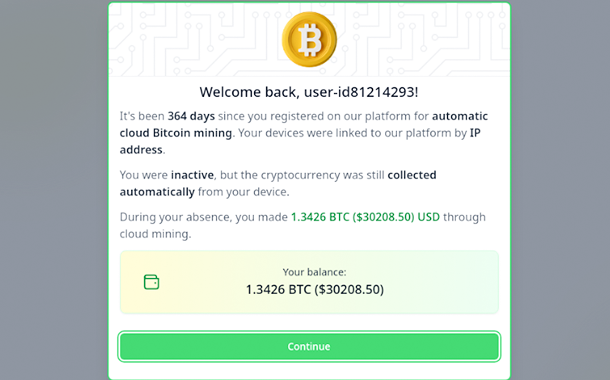Kaspersky’s anti-phishing systems have prevented 5 million cryptocurrency-related phishing attacks in 2022, increasing by 40% compared to the previous year. Conversely, there was a decrease in the detection of traditional financial threats, such as banking and mobile financial malware. These and other findings can be found in the company’s latest report on financial threats.
According to a new report by Kaspersky, the financial threat landscape has seen significant changes in 2022. While attacks using traditional financial threats such as banking PC and mobile malware have become less common, cybercriminals shifted their attention to new areas, including the crypto industry.
In the last year, cryptocurrency phishing rose significantly and was included as a separate category, demonstrating 40% year-on-year growth with 5,040,520 detections of crypto phishing in 2022 compared to 3,596,437 in 2021. This increase in crypto phishing could be partially explained by the havoc that occurred on the crypto market last year. It is still unclear if the trend will continue, this depends on the trust users place in cryptocurrency. This data correlates with users’ experiences with cryptocurrency threats explored by Kaspersky earlier this year – every seventh person surveyed was affected by cryptocurrency phishing.
Although most crypto scams feature traditional tricks such as giveaway scams or fake wallet phishing pages, a recent active fraudulent scheme discovered by Kaspersky shows scammers are constantly coming up with new techniques to ensure their success. In this campaign, the user receives a PDF file in English by mail, stating that they allegedly registered on a cryptocurrency cloud mining platform a long time ago and need to urgently withdraw a lot of crypts since their account is inactive. The file contains a link to a fake mining platform. To withdraw the crypt, the user must fill out a form with personal information, including the card or account number, and pay a commission, in this case, through a crypto wallet or directly to the specified wallet address.
“Despite some problems that have occurred in the cryptocurrency market over the past six months, in the minds of many people, crypto still remains a symbol of getting rich quick with minimal effort. Therefore, the flow of scammers parasitizing in this field does not dry out. In order to lure victims into their networks, these scammers continue to come up with new and more interesting stories,” commented Olga Svistunova, a security expert at Kaspersky.
To maximize the benefits of using cryptocurrency safely, Kaspersky experts also recommend:
- Be cautious of phishing scams: Scammers often use phishing emails or fake websites to trick people into revealing their login credentials or private keys. Always double-check the URL of the website and don’t click on any suspicious links.
- Don’t share your private keys: your private keys unlock your cryptocurrency wallet. Keep them private and never share them with anyone.
- Educate yourself: stay informed about the latest cyber threats and best practices to keep your cryptocurrency safe. The more you know about protecting yourself, the better equipped you’ll be to prevent cyber-attacks.
- Research before investing: before investing in any cryptocurrency, research the project and the team behind it thoroughly. Check the project’s website, white paper, and social media channels to ensure that the project is legitimate.
- Use security solutions: a reliable security solution will prevent all known and unknown cryptocurrency fraud, as well as unauthorized use of your computer’s processing power to mine cryptocurrency.























